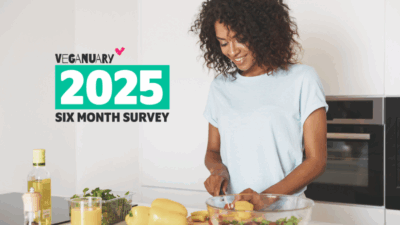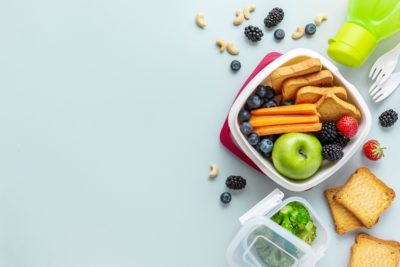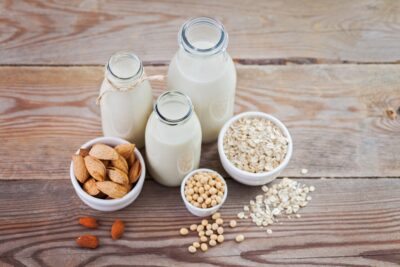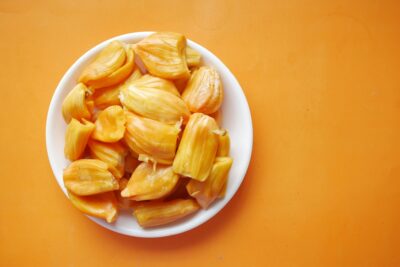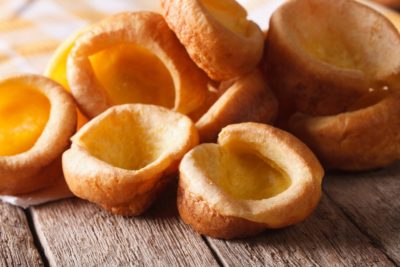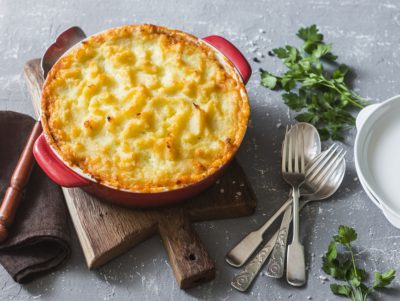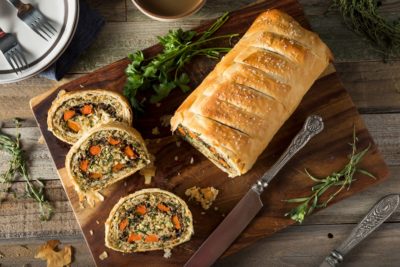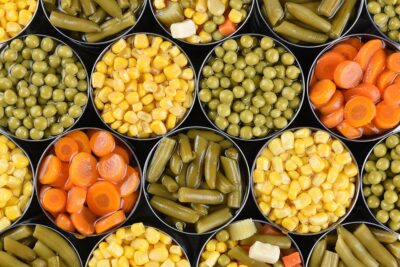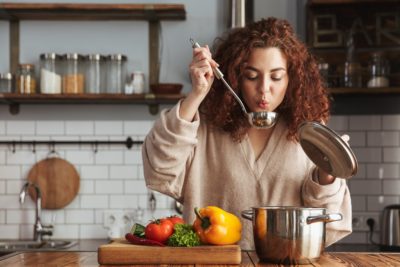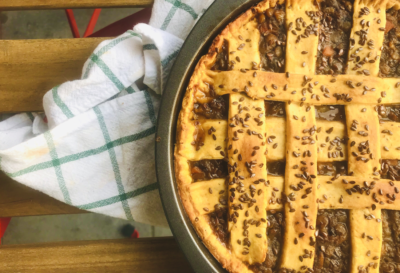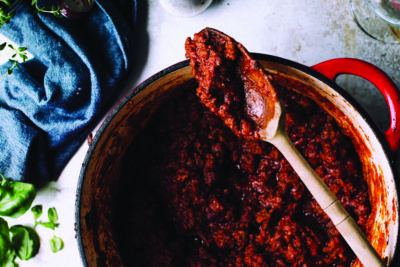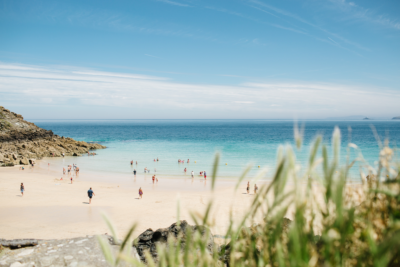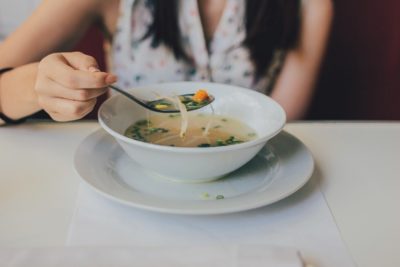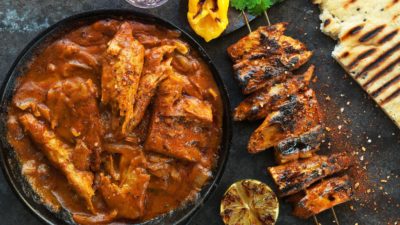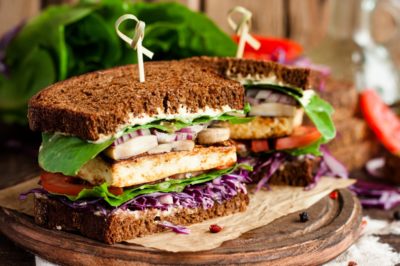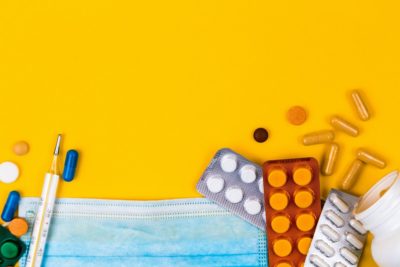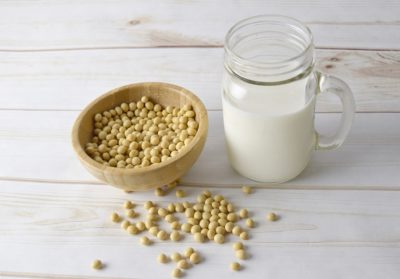No it doesn’t.
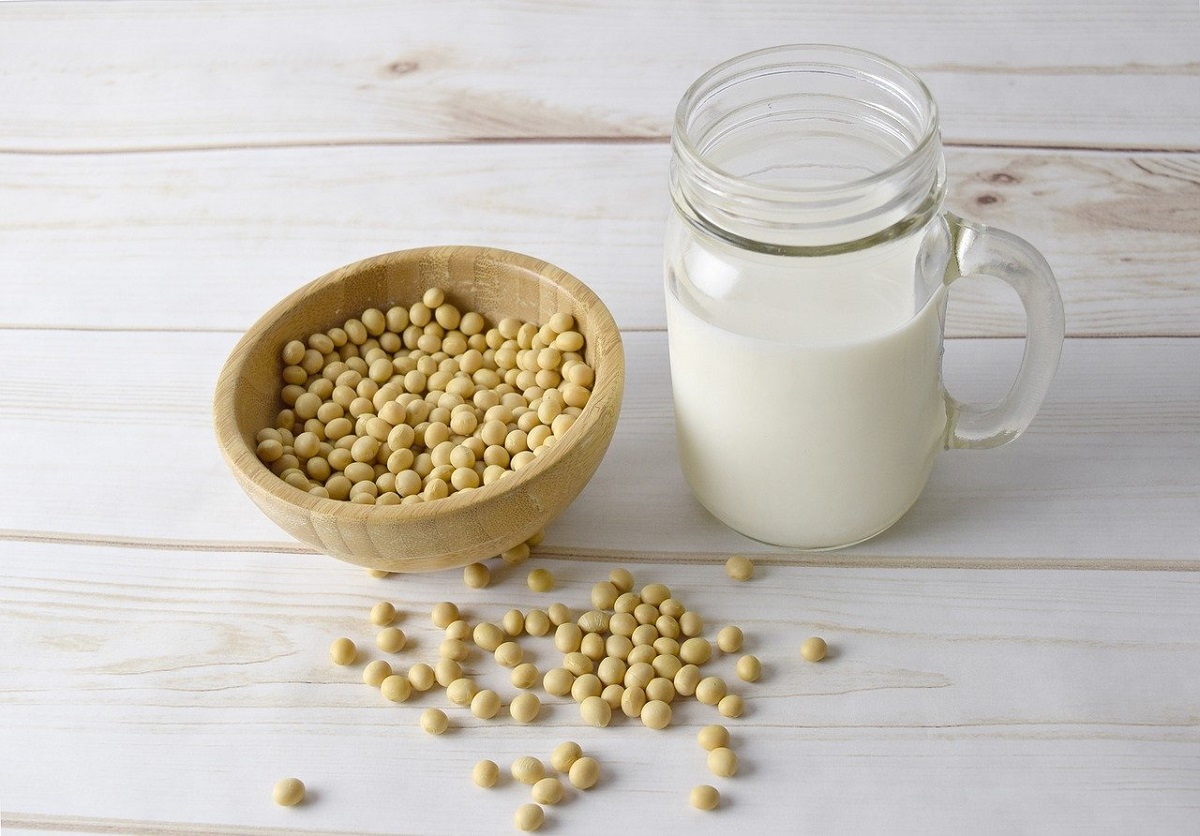
There was some conjecture that because soya contains phytoestrogens, known as isoflavones, which resemble oestrogen chemically, that they would act in the same way as oestrogen. Since most breast cancers are sensitive to oestrogen, some unhelpful headlines were splashed about before the research was done. But since then a steady stream of research has been conducted and the results show that, far from causing cancer, soya actually protects against it.
The low rates of breast and prostate cancers in Asian countries, where soya is consumed in greater quantities than in the UK and the US, have led scientists to investigate the role of soya foods on cancer, with a particular focus on breast and prostate cancer. Consumption of soya is associated with a 20-30 per cent reduced risk of prostate cancer. Incredibly, research has also shown that consuming soya can also help slow down the rate of prostate cancer if it has already taken hold.
And it is a similar story for women. Research shows that women who consume more soya suffer fewer breast and uterine cancers. One study found that women who have just one cup of soya milk per day (or half a cup of tofu) have 30 per cent less risk of developing breast cancer compared with women who have little or no soya. And the sooner we start eating soya the better, as breast tissue forms in adolescence, but it is also never too late. The Women’s Healthy Eating and Living Study found that women who had previously been diagnosed with breast cancer would do well to include soya products in their diet as those who consumed the most soya products cut their risk of cancer recurrence or mortality in half.
Cancer Research UK gives two bits of advice to help prevent breast cancer: 1) replace animal fats with vegetable oils and margarines, and 2) eat more isoflavones found in soya, peas and beans.
Soya is a good guy. Eat lots!

